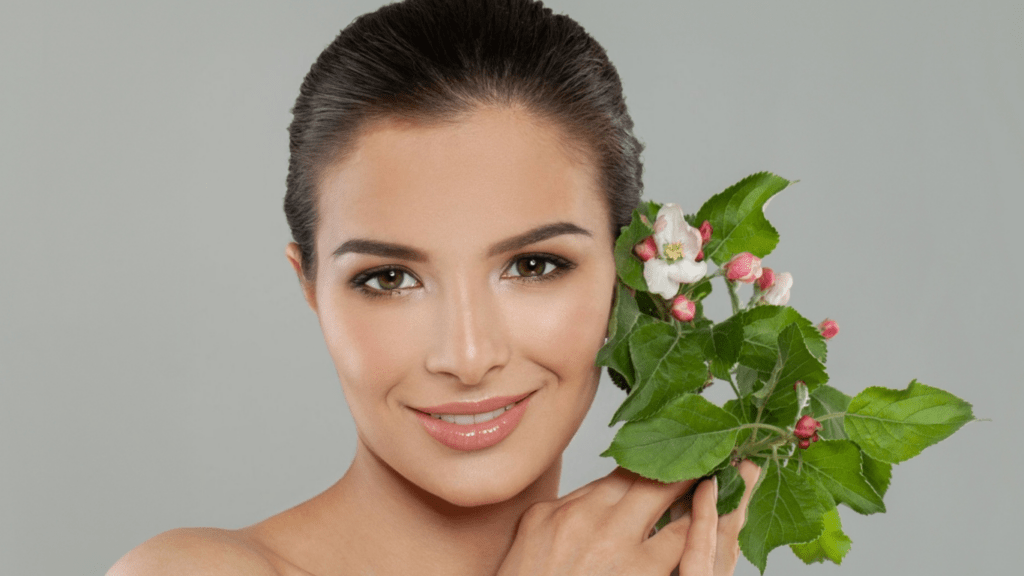Understanding Antioxidants
Antioxidants are powerful molecules that help protect skin cells from damage caused by free radicals, which are unstable molecules that can harm cells. These unstable molecules form when the skin is exposed to certain environmental factors like UV radiation, pollution, and smoking. Free radicals cause oxidative stress, leading to signs of aging such as wrinkles, fine lines, and dullness.
Several antioxidants are commonly used in skincare products for their protective benefits:
- Vitamin C: Known for its ability to brighten skin and even out skin tone, Vitamin C also aids in collagen production, enhancing skin’s elasticity. It’s found in serums and moisturizers (e.g., L-ascorbic acid).
- Vitamin E: This fat-soluble antioxidant helps protect the skin’s lipid barrier, maintaining moisture levels. Commonly combined with Vitamin C, Vitamin E boosts overall antioxidant effectiveness.
- Green Tea Extract: Rich in polyphenols, green tea extract has anti-inflammatory properties, making it ideal for reducing redness and irritation. It’s often included in cleansers and masks.
- Resveratrol: Found in red wine, grapes, and berries, resveratrol neutralizes free radicals and can extend the life span of skin cells, promoting a youthful appearance. It’s frequently featured in anti-aging serums.
- Niacinamide: Also known as Vitamin B3, niacinamide enhances the skin’s barrier function, improving its ability to retain moisture and resist damage from free radicals. It’s suitable for sensitive and acne-prone skin.
Incorporating these antioxidants into your skincare routine helps combat the effects of free radicals, leading to healthier and more resilient skin. Selecting products with these key ingredients ensures comprehensive protection and repair, maintaining your skin’s youthful glow.
Skin Benefits of Antioxidants
Antioxidants significantly enhance skin health by neutralizing free radicals. They prevent premature aging and improve the skin’s overall appearance.
Reducing Signs of Aging
Antioxidants diminish visible signs of aging. Free radicals accelerate aging through oxidative stress, leading to wrinkles and fine lines. By neutralizing these radicals, antioxidants like Vitamin C and resveratrol reduce the appearance of aging.
Protecting Against Sun Damage
Antioxidants shield the skin from harmful UV rays. Sun exposure generates free radicals, causing photodamage. Ingredients like Vitamin E and green tea extract protect skin cells from UV-induced harm, minimizing sunspots and hyperpigmentation.
Improving Skin Tone and Texture
Antioxidants enhance skin tone and texture. They promote cell regeneration and repair damaged skin. Niacinamide and Vitamin C, for example, improve skin barrier function and stimulate collagen production, resulting in a smoother, more even complexion.
Essential Antioxidant Ingredients
Antioxidants play a crucial role in skincare by protecting skin from environmental damage. Here are some essential antioxidant ingredients you need to know about.
Vitamin C
Vitamin C brightens skin and stimulates collagen production. It fights free radicals, reducing signs of aging like:
- fine lines
- wrinkles
Products containing Vitamin C, like serums and moisturizers, should be applied daily for maximum benefits. According to a study in the “Journal of Clinical and Aesthetic Dermatology,” Vitamin C also helps reduce hyperpigmentation and provides photoprotection.
Vitamin E
Vitamin E protects the skin’s lipid barrier and offers hydrating benefits. It’s known for its ability to neutralize free radicals formed due to UV exposure. Vitamin E is often found in creams and oils. This antioxidant supports the skin’s natural recovery process, making it essential for maintaining healthy, resilient skin.
Ferulic Acid
Ferulic acid enhances the efficacy of other antioxidants, such as Vitamins C and E. This ingredient stabilizes these vitamins, making antioxidant formulas more potent. According to research, when combined, these antioxidants provide substantial protection against UV-induced skin damage. Ferulic acid is commonly found in antioxidant serums, increasing their effectiveness.
Coenzyme Q10
Coenzyme Q10 (CoQ10) energizes skin cells and supports cell rejuvenation. This antioxidant reduces the appearance of fine lines and wrinkles by boosting cell activity. Studies have shown that CoQ10 helps in repairing and regenerating skin, making it a key ingredient in anti-aging creams and serums. It’s beneficial for maintaining youthful, healthy skin.
Green Tea Extract
Green tea extract provides anti-inflammatory and antioxidant benefits. Rich in polyphenols, particularly EGCG, it reduces redness and protects against sun damage. Green tea extract is effective in soothing irritated skin and is found in various skincare products, including toners, creams, and masks. Its ability to fight free radicals and calm the skin makes it invaluable for a balanced skincare routine.
These essential antioxidant ingredients offer various benefits, all contributing to healthier, more resilient skin.
How to Incorporate Antioxidants in Your Skincare Routine
Incorporating antioxidants into your skincare routine is essential for maintaining healthy, radiant skin. To maximize their benefits, selecting the right products and following proper application tips is crucial.
Selecting the Right Products
Choosing antioxidant-rich products requires understanding key ingredients and their benefits. Look for serums and moisturizers containing Vitamin C, Vitamin E, or green tea extract. These ingredients are potent in neutralizing free radicals and protecting against environmental damage. Check product labels for concentrations; serums with 10%-20% Vitamin C or 2%-5% niacinamide can be highly effective.
Application Tips
Apply antioxidant products correctly for optimal results. Use serums right after cleansing and before moisturizing to ensure maximum absorption. Gently pat the serum onto your skin, focusing on areas prone to damage like the forehead and cheeks. Follow up with a moisturizer containing antioxidants to lock in the benefits. For daytime routines, always apply a broad-spectrum sunscreen with at least SPF 30 to protect against UV damage, enhancing the efficacy of your antioxidant products.
Potential Side Effects and Precautions
While antioxidants offer numerous benefits for skin health, some potential side effects and precautions should be considered. Individuals with sensitive skin might experience irritation when using highly concentrated antioxidant products. It’s advisable to perform a patch test on a small skin area before applying the product more widely.
Certain antioxidants, like Vitamin C, can sometimes cause redness, itching, or tingling sensations, especially when first introduced to the skincare routine. If these symptoms persist or worsen, reducing the frequency of application or choosing a lower concentration may help.
Photosensitivity is another potential issue with some antioxidants. Ingredients like retinol increase skin’s sensitivity to sunlight, increasing the risk of sunburn. Applying these products at night and using broad-spectrum sunscreen during the day can mitigate this risk.
Combining multiple antioxidant products can lead to over-exfoliation and skin barrier disruption. To avoid this, I recommend starting with one antioxidant product and gradually incorporating others. Consulting with a dermatologist can help tailor an antioxidant regimen to individual skin needs.
Storage conditions also impact the efficacy of antioxidant products. Ingredients like Vitamin C, for instance, are sensitive to light and air, which can degrade their potency. Storing these products in dark, airtight containers in cool environments preserves their effectiveness.
While antioxidants are beneficial, addressing potential side effects and taking precautions ensure they contribute positively to skin health. By following these guidelines, individuals can effectively include antioxidants in their skincare routine without adverse effects.




